
The finish line
Jem Bendell is a self-described “doomster”. He started out as an activist promoting corporate sustainability in the 90s, shifting to academia as a professor of sustainable development recognised by the

Free in freezing
Fardin was an activist student in Afghanistan’s capital, Kabul, in 2021, when the Taliban took control, turning his world upside down. He now lives in Russia near the Arctic circle.

Smash and grab
Ruben Andersson and David Keen are academic investigators seeking to understand what they see as a conundrum: How come politicians and their collaborators are able to pursue for so long,

Moral bankruptcy
Colin Mayer CBE is an eminent Oxford University professor and fellow of the British Academy – the top club for social scientists. He believes that capitalism is in crisis and
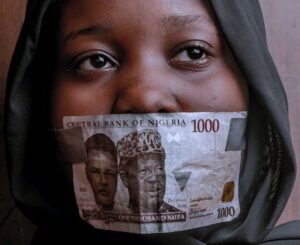
Money talks
Seven years ago a group of students who were central to the revolt against mainstream economic teaching in universities, published a book, The Econocracy. This book criticised mainstream economics education

The differential equation
David Stainforth is professor of physics with a deep passion for modelling the dimensions of the climate crisis in a form that is useful for decision makers and the wider

Tough take
Jocelyn Olcott, a professor at Duke University, is an expert on feminist history and the history of feminist economics. So The Mint sought her take on where things stood. Are

The philanthropist’s stone
Amy Schiller makes her living advising on how to do philanthropy well. And she has written a book suggesting the approach to most modern philanthropy is fundamentally misguided. The main

Killer watts
Helen Thompson is a professor of international political economy who thinks that understanding energy can explain a lot (if not all as she is careful to say) that has happened

Beyond the pale?
Lebohang Liepollo Pheko is a South African activist academic who was one of the non-Europeans invited to speak at the recent Beyond Growth conference in the European Parliament. This conference

Talking Shop
Christopher Dent is an international political economist who has been observing how international institutions have talked the neo-liberal language on climate change, energy and environment for the past few decades.

Fools and their money
Rosie Collington, with Mariana Mazzucato, are authors of a new book laying bare the world of consultancies and their clients. They argue that the consulting industry weakens our businesses, infantilises

On the road to reality
Professor Alan Kirman became a complexity economist before the term was invented. Having trained in equilibrium economics, his intellectual curiosity led him to do something few economists actually do: study

Reclaim the right
At a time of fake news, fraud and big lies, Alice Sherwood has come to the rescue with a book on authenticity. In it, she argues that although our counterfeit

Anti matters
Tony Myatt is a professor of economics in Canada and author, with Rod Hill, of the Economics Anti-Textbook in 2010. He has recently published the Macro Economics Anti-Textbook. The Mint

Speaking figures
Max Lawson is a seasoned non governmental organisation development campaigner. He bagged Oxfam itsbiggest ever-social media hit in 2013 in the run up to Davos using the shocking fact that

Power corrupts
Innovative economic thinker, Nicholas Gruen, has been seeking to influence policy and programmes for many years in Australia and beyond. Unlike many policy proponents, he has a deep understanding of

Tragically speaking
George DeMartino is not your everyday academic economist. Over the past ten years and more he has campaigned for the economics profession, as he calls it, to have a code

On being an inspiration
Chee Yoke Ling has, since the 1980s, supported Global South countries in becoming more effective in international policy negotiations. The Mint called her up in Bonn, where she was attending

Drowning in silence
The Mint spent time with Waqar Rizvi, a media commentator in Pakistan, to discuss views from the global South – particularly its perspectives on demands for climate change compensation –

Inclusive banking – a teller’s tale
Tony learnt his trade in banks starting from the shop floor. He then decided he wanted to create a bank that helped small enterprises in Nigeria who were excluded by
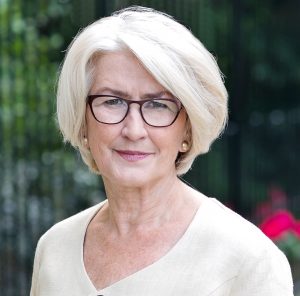
Neo expressionism?
Ann Pettifor’s energy and analysis is currently focused on the state of the international financial system. The Mint caught up with her to get her sketch of its direction of

A confluence of influence
Steve Keen has just finished his attempt to move from academia to politics in the recent Australian election. Even though he wasn’t successful, he had a ringside seat to a

Step one
Joris Tieleman and Sam de Muijnck, relatively veteran Rethinking Economics activists, have just produced a guide to economics curriculum design: Economy Studies: A Guide to Rethinking Economics Education. The Mint

Bad grammar?
British academic, and ecological economist, based in Vienna, Clive Spash, was one of the few expert voices who openly and scathingly criticised the recent Dasgupta Review. The 600-page review by

The land ahead
The only point of agreement on the future of land management and agriculture in the UK is that it is undergoing huge change post-European Union exit and the new imperative

A new class act
Douglas Eger is an environmentalist and a serial entrepreneur. He is looking to bring together these two strands of his career in a new venture to create a new asset
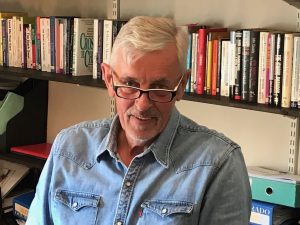
Handle with care
John Seddon believes in the importance of good services to the public, particularly in providing care. He has been working with organisations in many sectors to help their leaders understand

A view from the top
Helena Norberg-Hodge has campaigned for decades to challenge the forces of globalisation and develop local economies with ecological diversity and caring relationships. A life’s work was formed out of a

The biggest issue
Professor Jane D’Arista’s broad and deep expertise spans monetary policy and regulation. Rick Rowden asked her some large-scale questions about the global economy for The Mint. The Mint: What are your

All change
Former Czech Prime Minister Vladimír Špidla says our way of life is pulling into its final stop. He tells The Mint it’s time for the world to get off and

Commons concern
American natural resource economist, Erik Nordman, has just written a book about Elinor Ostrom, the first woman to win the Nobel Memorial Prize in Economic Sciences. The Mint quizzed him

Cop out?
So what can we expect from COP26, billed as the “most important international meeting to address climate change yet”? Will country ambition “ratchet up” as the architects of the Paris

The climate crisis cause
As we struggle to find common international cause to address climate change, you might not immediately think of reaching for a philosopher’s book – How to think about the climate

Big guy for the little guy
Tim Cowen is a campaigning barrister representing small businesses against the dominant players in digital. The Mint heard from him about the new international coordination of anti-trust action against the

Tribes and tribulations
Feted author, journalist and anthropologist, Gillian Tett has a new book: Anthro Vision: How Anthropology Can Explain Business and Life. She told The Mint what Anthro Vision was and how

Lone interest
Loneliness is not a standard subject for economists. So The Mint was intrigued to talk to Noreena Hertz about her new book, The Lonely Century: A Call to Reconnect. Noreena

The coarse in economics
Tom Bergin is an award-winning, financial journalist of long standing. He tends to specialise in the seamier side of corporate behaviour, his previous book being on the BP Horizon disaster.

From Russia with luck
A tale of corruption and corridors. The Mint hears how Alena Ledeneva looks for favours. During the final days of the Soviet Union in 1990, a young sociology student in

The growing realisation
Tim Jackson has just published a new book, Post Growth – Life After Capitalism, examining our disastrous obsession with growth in a finite world and how we might escape it.
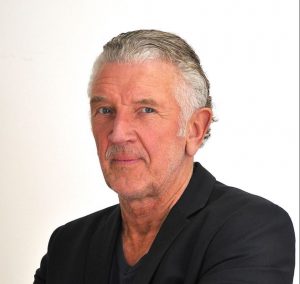
After the bull’s left the shop
Six months ago we talked to German economist and erstwhile policy adviser, Wolfram Elsner, about the future of China and geo-political economics. He had just published a book, The Chinese

Intensive Care
Over five years, Madeleine Bunting travelled the country, speaking to charity workers, doctors, social workers, in-home carers, nurses, palliative care teams and parents, to explore the value of care. Out
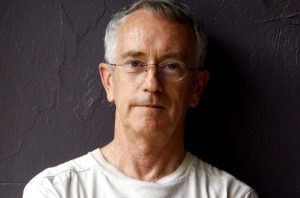
Pioneering spirit
Steve Keen, bête noir of neo-classical economists and author of Debunking Economics, has just published an article in which he sets out a new approach to macro-economic modelling he has

Indian Summary
Surbhi Kesar is a young, Indian, pluralist economist, who has been researching the impact of Covid-19 on vulnerable Indians. The report she has contributed made the newspaper headlines in India.

The Clout of Africa
The Mint caught up again with US-based, Kenyan economist, Mwangi wa Gĩthĩnji, on how Africa is coping with the pandemic and what that might mean in the long term with

Chinese walls are invisible
German economist and erstwhile policy adviser, Wolfram Elsner, has just published a book, The Chinese Century after researching and teaching in China for almost a decade. When he started out, he

Why not?
Steve Keen is currently viewing the world from Thailand, which is remarkably now almost virus free. He arrived there with his Thai partner on one of the last flights in

India: an even bigger picture
Smita Srinivas is an Indian pluralist economist whose work includes examining the political economy of the health industry. India has not had good press over its response to the pandemic,

Back to Africa
Three months ago The Mint discussed with US-based, Kenyan economist, Mwangi wa Gĩthĩnji, the outlook for Africa in the mounting pandemic. At that time, things did not look good in

Mindful Economics and the Circular Economy
“Mindful Economics” – Neil Wilkins is joined by Henry Leveson-Gower, CEO and Founder of the charity Promoting Economic Pluralism and Editor of economics publication, The Mint Magazine to discuss economic

Youth is not enough
This issue Mwangi wa Gĩthĩnji was going to talk to The Mint about the economic success of the Ethiopian development model. However given current events, he was keen to talk

Cooperatives on the table
Jessica Gordon-Nembhard is a leading economist studying co-operatives. In fact she effectively invented this economic research agenda in the US. She was brought up by social activists who discussed Marx

Saving you the trouble
Felicia Wong and her team at the Roosevelt Institute in New York have just read the work of 150 leading new economics thinkers so you don’t have to. They have
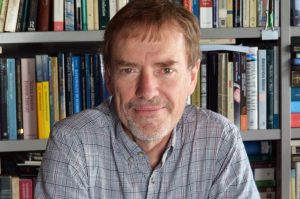
Theoretically speaking
Randy Wray was one of the finalists for our #NotTheNobel prize in October and is one of the world’s leading advocates of Modern Monetary Theory (MMT). It might sound like

Over tea
In a new series of interviews, we talk to Mwangi wa Gĩthĩnji about economic innovations in Africa. In our first interview Mwangi talks about the Kenyan Tea Development Authority established

Licence to be Bad
We were probably all told as children to share and not be selfish. This contrasts with economic

A World Away
Economics training in Africa has long been funded by the World Bank so it keeps to the narrow track of mainstream economics – as do the economic policies in Africa.
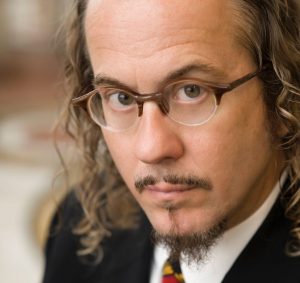
Significantly speaking
Stephen Ziliak has spent much of his illustrious career in economics examining the significance of significance – that is the statistical test of significance. It turns out how this test

A New Leaf
Michael Jacobs was a special advisor to Gordon Brown when the idea of the Green New Deal (GND) first emerged in the UK in 2008 as a green response to

Bots and bell ringing
Richard Baldwin is a leading international expert and author on globalisation. In his most recent book, he writes about the coming age of “globotics”, an even more intense globalisation plus

Open Season?
The debate in the US on economics in the policy sphere has suddenly exploded with discussion of the Green New Deal and taxation on the wealthy. Much of this is

A hole in the heart
Grazia Ietto-Gillies has spent her career as an economist seeking to fill a crucial gap: the exclusion of transnational corporations into economic thinking. And this gap is not a small

Taking a part
So who enjoys being on committees? The prospect of community collaboration is haunted by the spectre of meetings, minutes, legal status, insurance etc. This is off-putting for even those inured
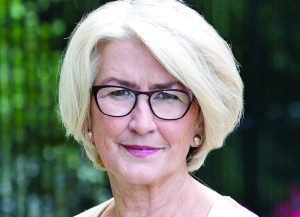
They think it’s all over
Our main political parties see a reputation for economic competence as key for achieving power. The Tory party is reportedly scared that a Brexit disaster will destroy its reputation, which

A change is as good as a rest
John Kay has embraced uncertainty and explains how we must do this to make economics relevant. Meanwhile little has changed he tells The Mint. With the Lehman Brothers collapse and the
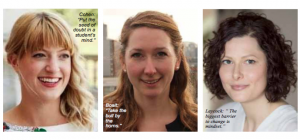
Three Come Forth
A trio of leaders of organisations that have emerged as responses to the Crash talk to The Mint about the progress so far and the future outlook. Maeve Cohen, Fran

Good work if you can get it
Interview – Matthew Taylor Chief Executive of the Royal Society of the Arts, Matthew Taylor, last year led a review for the Government to consider how employment practices needed to change

Caring and Sharing
Interview: Juliet Schor Since 2010 Juliet Schor has been studying the recent phenomenon that is the sharing economy. She first rose to prominence in the 1990s with her bestselling book
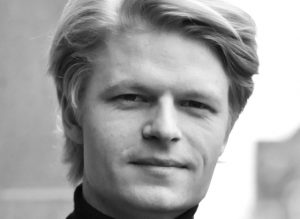
Stewarding Zebras
Armin Steuernagel has founded a new company called Purpose. It supports people who want help transforming their companies into models of steward ownership guided by public purpose. He tells how
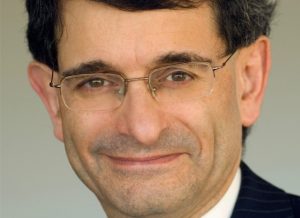
Will turkeys vote for Christmas?
The British Academy doesn’t seem the obvious place to start a revolution. Nevertheless, Professor Colin Mayer is leading a research project there to rethink the nature of corporations and hence,

Street Fighter
Laura McCullagh works with people who are in danger of homelessness. She tells The Mint how her clients’ difficulties begin with lack of money and how she tries to guide
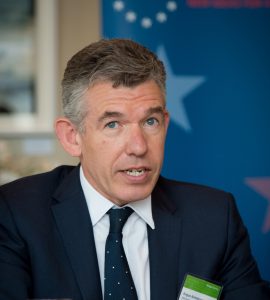
Gamekeeper turned Revolutionary
Angus Armstrong is now leading a centre charged with the task of restoring the relevance of macroeconomics following its failure to see the possibility of the 2008 crash. And he
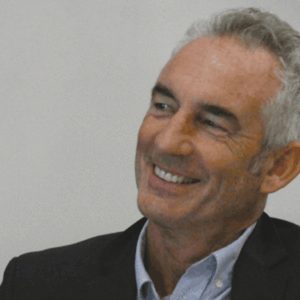
Growing pains
Tim Jackson gained his global reputation outside academia with his groundbreaking book Prosperity without Growth, originally published in 2009 as a report from the Sustainable Development Commission for the UK government. In it he

Annulus mirabilis
Raworth: I’m not a serious academic; I’m a serious activist. Kate Raworth has, in her blend of new economic thinking, served up a printed equivalent of hot cakes with her

State: your business
Barker: “Politicians are perfectly entitled to do things to political ends but you’ve got to have somebody who encourages them to stop and think before they do.” The government has
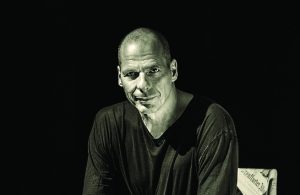
Unorthodox Greek
Yanis Varoufakis is a heavyweight academic economist with a rare combination of style and substance. He talks to The Mint. Economics professor, Yanis Varoufakis, describes himself as a “failed finance minister

A return to fundamentals
Hall: “Most production models of economics are not based on these biophysical laws and principles; in fact, they tend to ignore them.” For decades mainstream economics has been able to
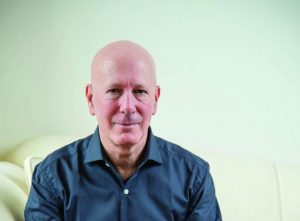
Rick Bookstaber Interview: A model agent
Mainstream economics’ failure to predict the 2008 crash undermined the profession’s public credibility. There’s a new game in town that financial risk guru, Rick Bookstaber, has faith in. He shares

Paul Nicolson Interview: Scarred with episcopal incomprehension and other tales
Paul Nicolson is a wine merchant, a minister and a lifetime battler for people who struggle to fight for themselves against the unjust and powerful. He had some stories for the The Mint. Paul’s family business

Weird and wonderful
What does a cocaine baron have to offer society? Self-confessed chief misfit, Alexa Clay, has seen the best in some of the worst. Somali pirates throw great parties. This we

Interview with Christian Felber: The Common Touch
Imagine a world where company success was determined by all the good it does. And where polluters of water, air and soil could not get investment. The Mint talks to
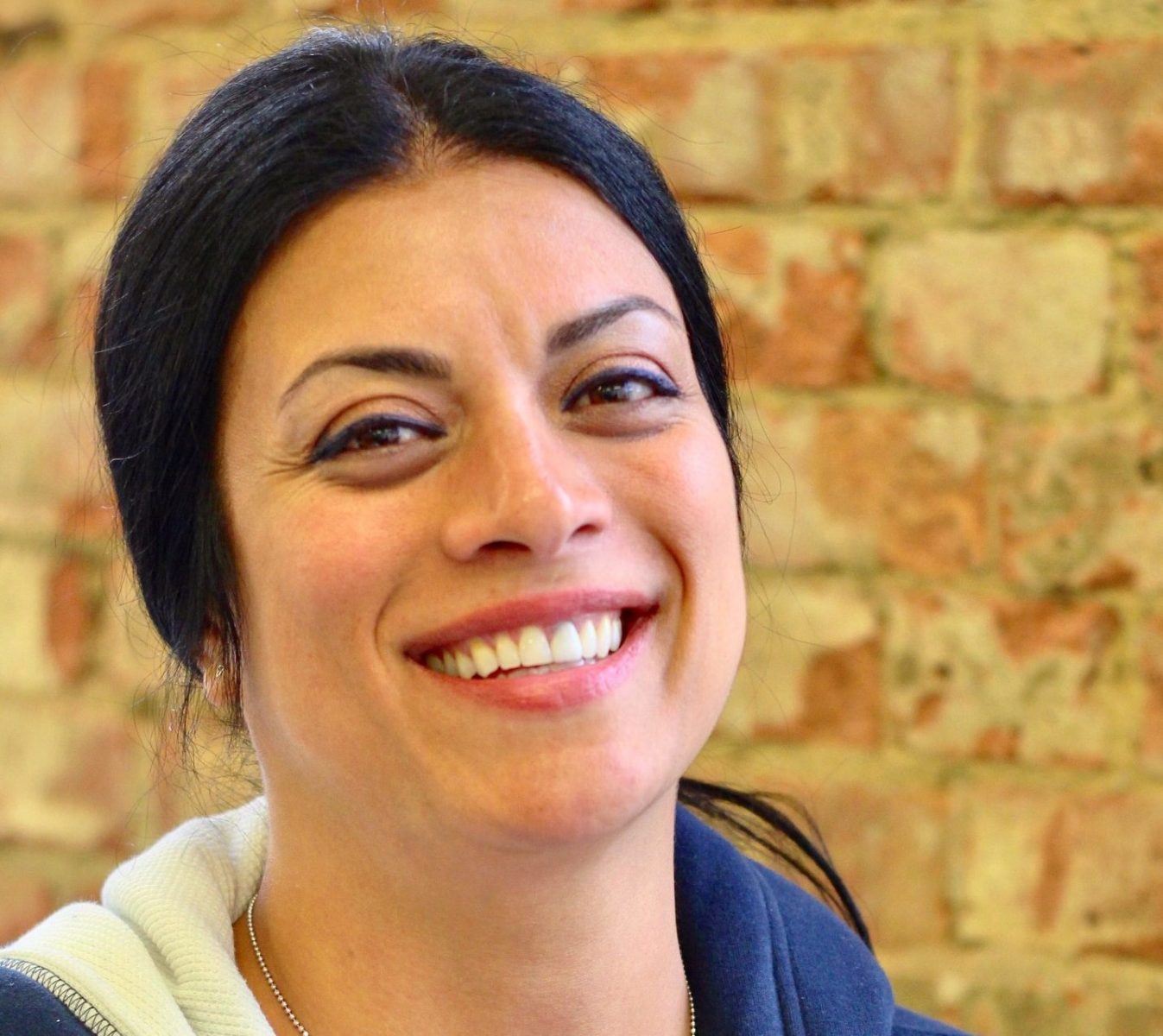
Decisions, Decisions
Lamy: the possibilities of digital simulation struck “a visceral chord.” Artificial intelligence could guide decisions from the political to the personal, if people would seize the opportunities on offer. The Mint talks to Dahlia Lamy, who says the

The only way is ethics
Pettifor: “Private authority can’t fully be trusted to uphold contracts.” Trust and compliance with regulation are not familiar virtues in the world of global finance according to Ann Pettifor. She

He who pays the piper
Baker: his message struggles to be heard because a lot of money goes into calling the other tune. Dean Baker explains how calls for a new type of market –

Is fair enough?
Hart: “I’ve become more open to these behavioural ideas, which I was initially not.” Contracts are a big deal. They have a place in all manner of economics transactions and

Pint sized pulls ahead
Sean Looney has travelled the world and has arrived at a career in craft beer. His is a complex brew. Business. It’s not personal; never emotional it’s just business.

Three Years and Counting
Bête noir to established economists Steve Keen tells the Mint why Brexit ended a stupid policy but the government line on trade agreements is nonsense and an economic zombie apocalypse

She who dares
A globally influential thinker, Gabriela Ramos, explains why a group of leading economies is challenging globalisation and other conventional wisdom. More than 30 of the world’s wealthiest countries with market
